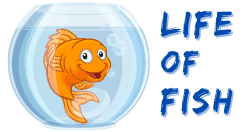Do goldfish eat mosquito larvae? It’s a question that I’ve heard my friends ask before. After all, mosquitoes can be an incredibly annoying pest and it would be great to keep them away with fish! But is this possible? Can goldfish really help us out by eating up the pesky larvae?
In this article, we’re going to take a look at whether or not goldfish actually do eat larvae of mosquito. We’ll explore some of the key facts about their diet as well as look into how effective this method is for keeping those irritating mosquitos away.
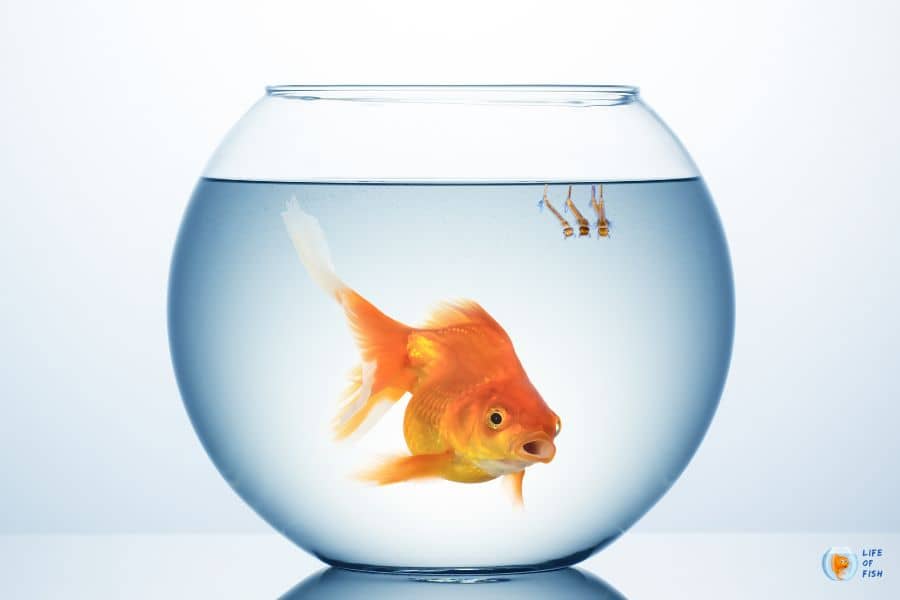
By the end of reading this piece, you should have a much better understanding of what your goldfish’s diet consists of and if they can truly munch on mosquito larvae.
Do Goldfish Eat Mosquito Larvae?
Jump To
- 1 Do Goldfish Eat Mosquito Larvae?
- 2 Types Of Goldfish That Eat Mosquitoes
- 3 Is Mosquito Larvae Suitable For Your Goldfish?
- 4 How To Raise Mosquito Larvae For Your Goldfish?
- 5 How To Offer Mosquito Larvae To Your Goldfish?
- 6 Benefits Of Mosquito Larvae For Goldfish
- 7 Risks Of Mosquito Larvae For Goldfish
- 8 Sourcing Mosquito Larvae For Goldfish
- 9 Can You Make A Mosquito Larvae Culture?
- 10 What Do Goldfish Typically Eat?
- 11 How Many Mosquito Larvae Can A Goldfish Eat?
- 12 Where Can I Find Mosquito Larvae For My Goldfish To Eat?
- 13 Conclusion
- 14 Recently asked questions
The answer is yes, goldfish can and do eat those larvae. It’s a great source of protein for them!
Mosquito larvae are small worms that live in water sources like ponds or lakes. Goldfish will usually find these tasty treats by snacking on parts of plants and algae growing near the surface of the water. Normally mosquitoes reproduce quickly and their young feed on organic matter found in standing water. It must be the reason that goldfish would be more than happy to munch away at them too.
Goldfish may not be as very good predators compared to other fish species. But they certainly don’t hesitate when it comes to eating mosquito larvae if given the chance. Unfortunately, there aren’t any studies out there confirming it specifically.
Types Of Goldfish That Eat Mosquitoes
Common types such as Comets, Fantails and Shubunkins do best with a vegetarian diet. Although some owners report success in training their fish to accept live prey items like brine shrimp or bloodworms. If your goal is mosquito control then consider getting a breed called ‘Mosquito Fish’ instead!
Is Mosquito Larvae Suitable For Your Goldfish?
To answer this question, we need to look at the life cycle of mosquitoes. Female mosquitoes lay eggs on the surface of standing water like ponds or lakes. These eggs then hatch into larvae which feed on microorganisms found in the water until they become adult. If the water is contaminated with chemicals mosquito larvae will also be contaminated. So, theoretically speaking, you can feed mosquito larvae to goldfish but whether or not it is suitable for your fish will mainly depend on where you collect them.
It’s important to note that there are no definitive answers here. Different species may prefer certain types of food even when others are available. Therefore, it’s recommended that you consult with a veterinarian or experienced aquarist before introducing any new type of food into your aquarium.
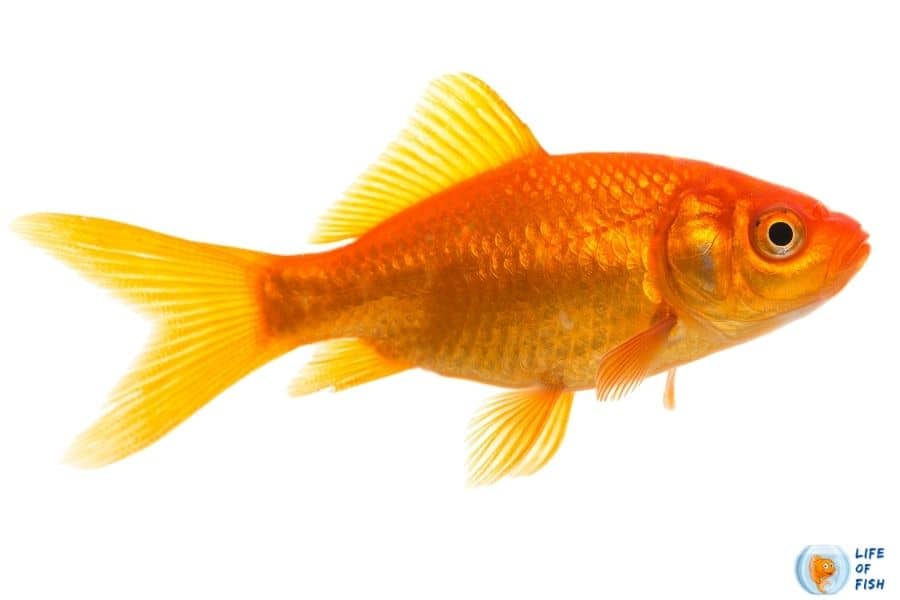
How To Raise Mosquito Larvae For Your Goldfish?
Mosquitoes go through four stages in their life cycle: egg, larva, pupa, and adult. You can find larvae in standing water and feed on organic matter. To feed your goldfish the mosquito larvae, you’ll want to find or create a source of standing water like a pond or birdbath that contains live mosquito eggs and then let those eggs develop into larvae over several days. Once they hatch out as larvae, use tweezers to collect them from the water surface and drop them directly into your aquarium where your fish will eat them up!
Be sure to keep track of when new batches of mosquitoes come in so that you always have fresh food available for your fish. With proper care and maintenance, feeding your goldfish mosquito larvae should provide them with plenty of nutritious meals throughout their lives. Remember that variety is key. Supplementing their diet with other foods such as worms or frozen shrimp will help ensure their overall health and well-being.
How To Offer Mosquito Larvae To Your Goldfish?
First off, it’s important to remember that not all goldfish will eat mosquito larvae right away. You should first try offering small amounts of other food, such as flakes or pellets, before introducing mosquitoes into their diet. This will help them eat smaller things more easily. Once they’re comfortable with consuming these items, then you can move on to adding some live mosquito larvae.
Finding a reliable source of fresh and healthy mosquito larvae is key here. Many stores sell freeze-dried versions which may contain preservatives or additives that are harmful for the health of your goldfish. Instead, look for suppliers who have access to living specimens. Then, you can add a few at a time directly into their tank. About once every week or two weeks depending on the size and appetite of your fish. If done correctly, your goldfish should start munching away happily!
Benefits Of Mosquito Larvae For Goldfish
Mosquito larvae can be a great snack for your goldfish, as they typically eat them in the wild. Fish naturally enjoy eating mosquito larvae and it offers many benefits to their health.
First of all, fish eat mosquito larvae because they are an excellent source of protein and minerals that provide essential nutrition for growth.
Mosquitoes also contain fatty acids which aid in maintaining good skin condition and providing energy.
Additionally, feeding your goldfish with these small creatures helps stimulate their appetite and improve digestion since they have a large surface area for absorption when eaten whole.
The other benefit is that mosquitos are relatively low-maintenance compared to other food sources such as worms or brine shrimp.
They don’t need to be live-fed like some foods do; you simply drop them into the tank where your fish will find them.
This makes it easier on you while still giving your pet a nutritious meal! Plus, there’s no waste cleanup necessary after feeding – another plus!
Offering mosquito larvae to your goldfish provides essential nutrition while being easy to feed and maintain – making it an ideal choice for keeping our finned friends happy and healthy!
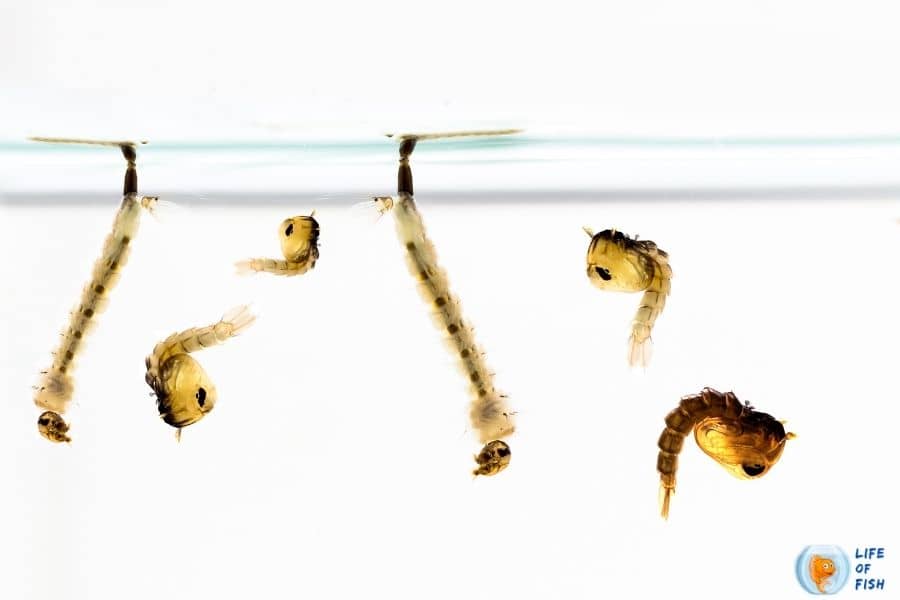
Risks Of Mosquito Larvae For Goldfish
When it comes to goldfish and mosquito larvae, there are both risks and benefits. While the life cycle of a mosquito provides an important food source for many fish species, including goldfish, too much consumption can be dangerous. It’s typically best to limit their intake as part of a balanced diet.
Mosquito larvae contain large amounts of fat which makes them desirable prey for goldfish. This can lead to health problems such as swim bladder disease if ingested in large quantities over long periods of time due to its high-fat content.
Additionally, adult mosquitoes lay eggs on standing water so any larva that is consumed could have been living in contaminated environments and carrying bacteria or other pathogens that can harm your fish.
For these reasons, you should take care when introducing mosquito larvae into your goldfish tank by limiting their quantity or frequency. Utilizing alternative sources of nutrition like flakes or pellets can also help ensure they get all the nutrients they need while avoiding potential health issues associated with consuming too much mosquito larvae.
Sourcing Mosquito Larvae For Goldfish
When it comes to feeding goldfish, sourcing mosquito larvae can be a great option. Not only are they easy to find and relatively inexpensive, but they provide excellent nutrition for your fish. Goldfish typically love them as a meal and will happily eat up any you offer them.
If you’re looking for mosquito larvae for your goldfish, there are several ways to go about finding some. You could check with local pet stores or aquarium supply outlets, or even look online if those options aren’t available in your area. If all else fails, you may also want to consider setting up a breeding tank of your own so that you have a steady source of food on hand when needed.
No matter which method you choose, make sure to do ample research beforehand and keep an eye out for freshness – old mosquito larvae won’t benefit your goldfish at all! With the right knowledge and preparation, you can easily provide high quality nutrition for your beloved pets without breaking the bank.
Can You Make A Mosquito Larvae Culture?
The answer is yes – it is possible to create an ideal environment for the mosquito larvae such that they can be used as a food source for your goldfish.
The most important thing when creating a culture is having the proper environment. This means making sure the container has enough air and water so that the larvae can live and breathe comfortably. You will also want to keep any contaminants away from the culture, like dirt or debris that could lead to bacteria growth. Lastly, temperature should be monitored carefully since too-high temperatures might kill off the larvae prematurely.
Once you have created the perfect atmosphere for your mosquitoes, you will need to feed them regularly in order to ensure their health and longevity. You might use small pieces of fruit or other organic matter as sources of nutrition – but whatever you choose needs to be broken down into tiny pieces so they are easier for your goldfish to consume without choking hazard. With regular feeding, your mosquito larvae culture should provide plenty of nutrition for your goldfish!
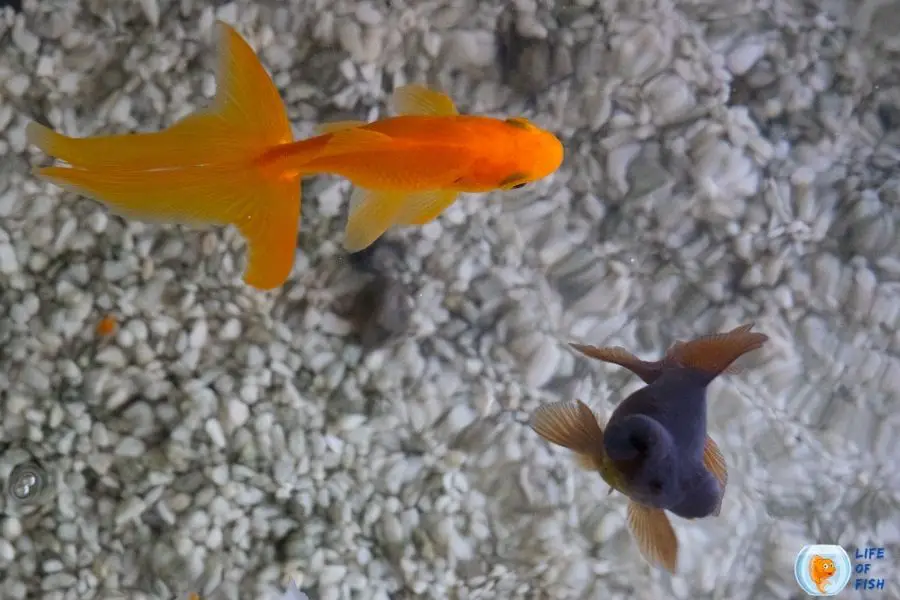
What Do Goldfish Typically Eat?
I’m sure many of us have seen or had goldfish before, but what do they actually eat? Well, it turns out that the answer is quite varied. In the wild, goldfish are omnivores and will feed on a variety of organisms in their environment. This can include mosquito larvae, although this isn’t typically part of their diet when kept as pets.
When keeping goldfish in an aquarium, you’ll want to make sure they get a balanced diet with plenty of nutrition to stay healthy. Generally speaking, commercial fish food is designed to provide all the nutrients they need – these can come as flakes, pellets or granules. It’s important to remember not to overfeed your fish though; too much food can cause issues like bloating or swim bladder problems.
Most pet stores also offer live foods for aquatic animals such as bloodworms and brine shrimp. These are high protein options which may be suitable for adult goldfish if given occasionally as treats rather than regular meals. However, small fry should only ever be fed dry foods since live prey could potentially harm them due to their size difference.
So there we have it: Goldfish require a balanced diet consisting mainly of commercially available dried foods supplemented by occasional treats such as live worms or shrimp.
How Many Mosquito Larvae Can A Goldfish Eat?
I’m sure you’ve heard the phrase ‘a goldfish will eat anything’ before. Well, it turns out this might be true when it comes to mosquito larvae! That’s right – goldfish can actually eat plenty of mosquito larvae in a single sitting. But just how many?
The truth is, there isn’t an exact answer to that question. It really depends on the size of your goldfish and how much food they’re used to eating. Generally speaking though, most adult-sized goldfish could consume anywhere from 10-20 mosquito larvae at once without any problems.
So while we can’t give you an exact number for how much a single goldfish can eat, what we do know is that they certainly have the capacity to munch down quite a few mosquitoes in one go!
Where Can I Find Mosquito Larvae For My Goldfish To Eat?
I know that my goldfish needs to be fed, but where can I find the perfect food for them? Mosquito larvae are a great option and I’m wondering how I can get some for my fish.
Thankfully, there’s plenty of places online where you can purchase mosquito larvae. You just have to make sure it is safe for your goldfish before buying! There should also be instructions on how much to feed your fish on the packaging or website.
The best part about feeding your goldfish with mosquito larvae is that they will eat as much as they need in order to stay healthy and active. And if you’re looking for an easy way to supplement their diet, this could be a good choice. So don’t hesitate – go out and find the right kind of mosquito larvae for your goldfish today!
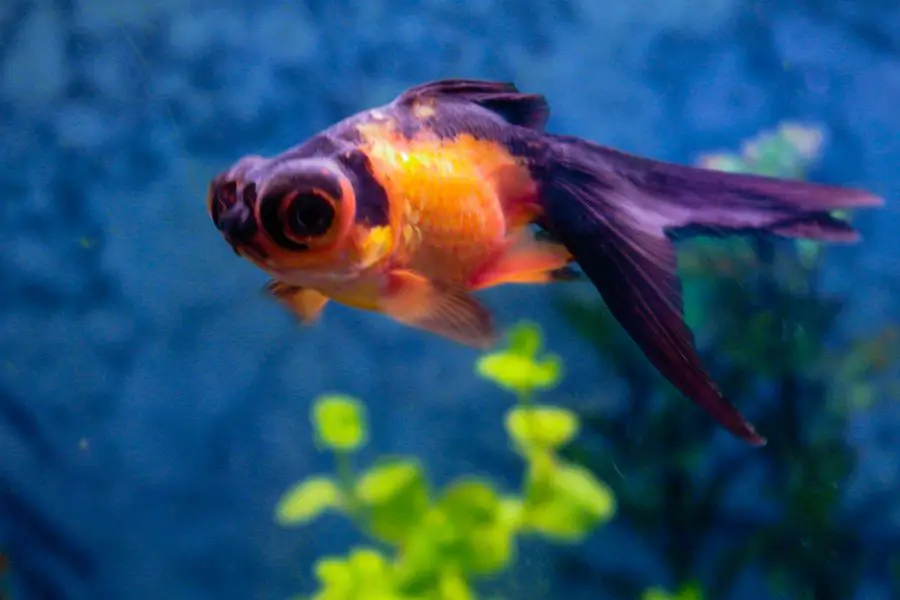
Conclusion
So now you know the answer to the question Do Goldfish Eat Mosquito Larvae? As we discussed, many types of goldfish are particularly fond of this type of food, although it’s important to remember that not all species will find them suitable. It is also possible to raise mosquito larvae at home in order to offer your fish a tasty treat.
It’s important to take into account what other foods they typically eat and how many mosquito larvae you should be offering them. Too much of any one food can lead to health issues for your pet, so ensure that their diet remains varied and balanced. If you plan on supplying your fish with mosquito larvae regularly, then consider setting up a permanent breeding culture for easy access whenever you need it.
Overall, there are lots of benefits to feeding your goldfish with occasional snacks such as mosquitoes larvae – just be sure to keep an eye on portion sizes and always check where you source the larvae from!
Recently asked questions
1.Do comet goldfish eat mosquito larvae?
Yes, Comet Goldfish will eat mosquito larvae.
2. Do koi eat mosquito larvae?
Koi fish also eat mosquito larvae, along with a variety of other small aquatic organisms.
3. Do tilapia eat mosquito larvae?
Tilapia is known to consume mosquito larvae as part of their diet.
4. Do cat fish eat mosquito larvae?
Some species of catfish, such as the mosquito fish (Gambusia affinis), are actually known for their ability to control mosquito populations by consuming mosquito larvae.
5. Do frogs eat mosquito larvae?
Frogs also eat mosquito larvae and can be an effective natural predator of mosquito larvae in ponds and other bodies of water.
6. Do minnows eat mosquito larvae?
Minnows are known to consume mosquito larvae and other small aquatic organisms as part of their diet.
Read Next : How To Keep A Betta Fish Happy: Unlocking The Secret To A Happy Betta
